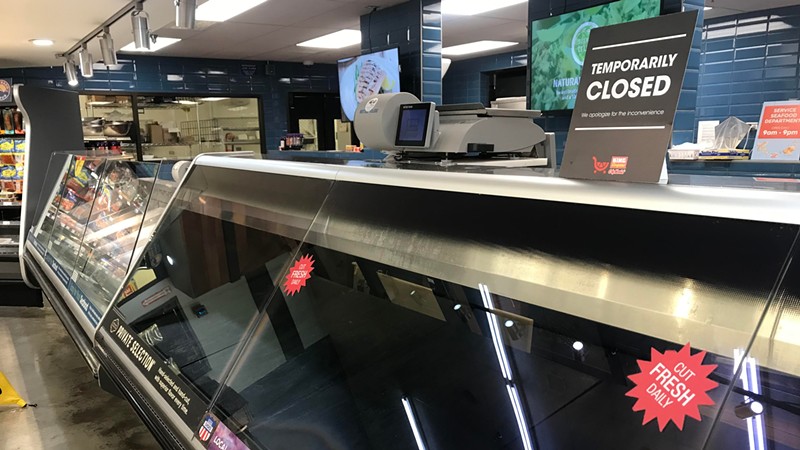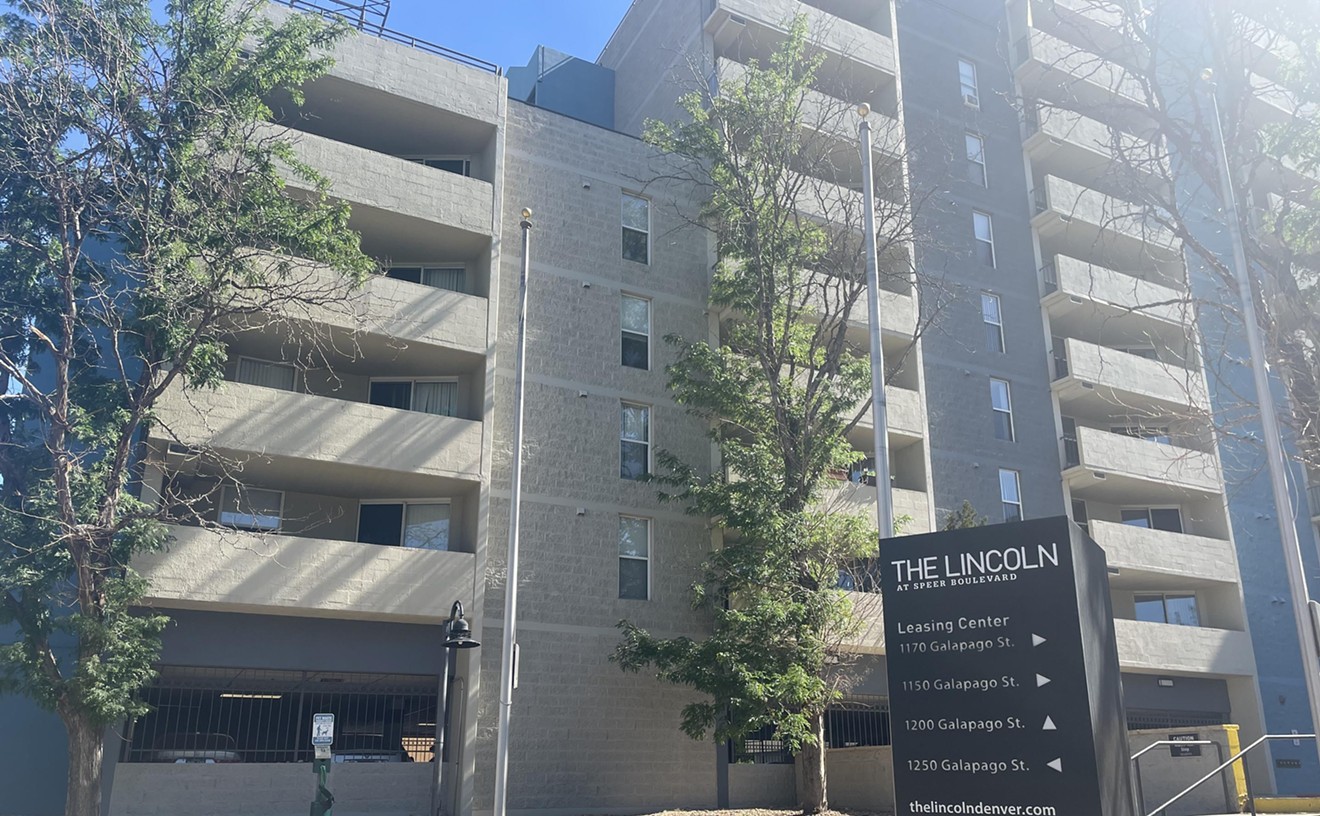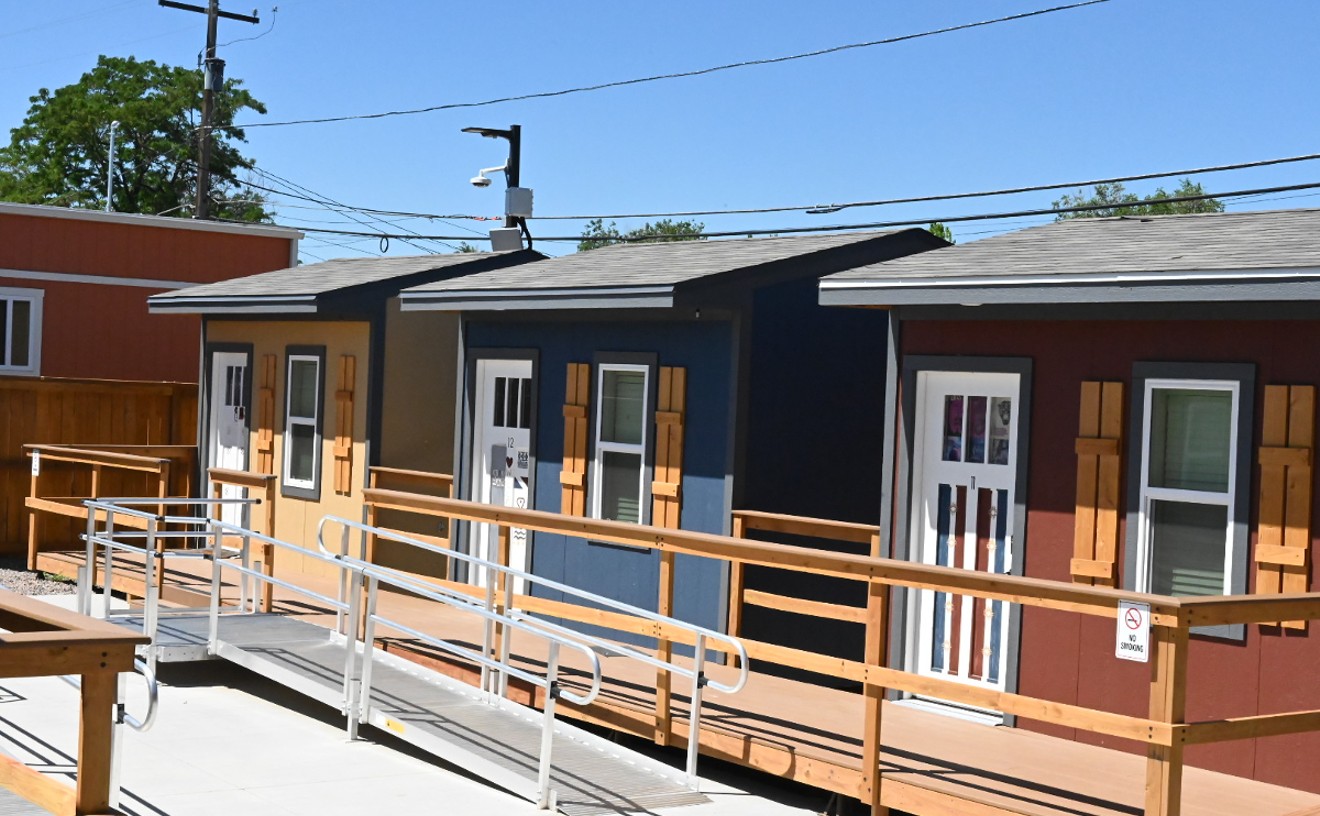Although neither side is sharing many details related to pay rates, overtime rules or other issues, visits to a King Soopers branch in southwestern Jefferson County over the weekend offered reasons aplenty why the company, which had won a temporary restraining order limiting the size of picket lines and more last week, chose to settle rather than prolong the conflict.
I stopped by the outlet a few hours after news of the deal broke, and while Local 7 employees were free to return to work, it was clear that few, if any, had by then at this particular branch. The aisles were crowded with customers eager to restock their pantries, but just two checkout centers were open, with overwhelmed management personnel at the registers. The lines were ten or more carts long, creating a huge snarl at the front of the store, and most of the buggies were overloaded despite widespread shortages of goods. Entire sections were picked clean of items, with produce, meat and dairy staples among the missing.
Meanwhile, a burly, bearded and unmasked employee stood in the store's entryway with crossed arms as he closely watched each person who entered and exited. He occupied the spot where the store's greeter is typically posted, but his task was clearly security, not pleasantries.

The milk selection was still seriously depleted at the southwest Jefferson County King Soopers on Sunday, January 23.
Photo by Michael Roberts
There was no one around to ask for help; once again, the only staffers who appeared to be on hand were managers desperately trying to check out an even larger number of customers than had shown up 24 hours earlier. (We didn't see anyone stocking shelves, which recalled footage of Gulf Coast retailers hammered by pre-hurricane panic-buying.) As a result, we drove to a nearby Safeway, which had everything we needed in stock.
The situation was slightly better at King Soopers on Sunday, when we usually make our purchases for the week. There were still lots of items missing and the pharmacy remained closed, but at least some of the union workers had returned, allowing more checkout stands to open. One explained that the pharmacy had been able to function for four hours on Saturday and should be back on a 10 a.m. to 6 p.m. schedule this week. The staffer added that most of the other employees were coming back on Monday, in anticipation of the contract being approved by the rank and file. Asked if he was expecting it to receive a thumbs-up, he answered, "God, I hope so."
We're guessing that almost everyone involved, from King Soopers executives to union members and customers frustrated by the entire situation, feels the same way.












